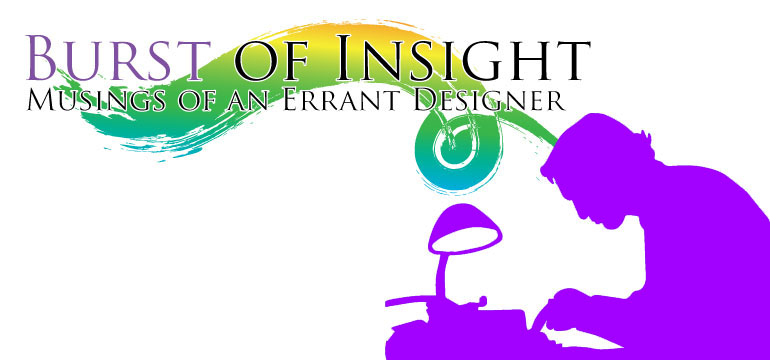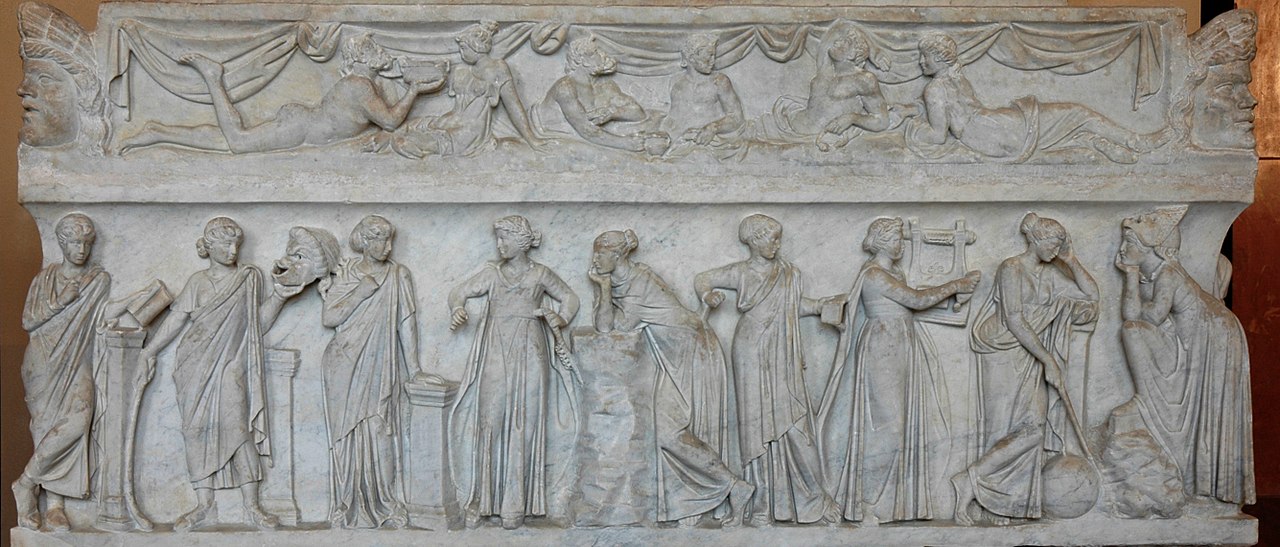Welcome back to another installment of Burst of Insight. Two weeks ago we talked about my evolving impressions of the Pathfinder Playtest and I still have a lot of opinions and impressions I need to unpack. So, this week I thought instead of lingering longer on the playtest I’d talk about inspiration. And how you might look for it.
Sometimes as I prepare to write a blog post or prepare a session for a homebrew campaign I’ll open up Word to begin writing and—Nothing. Nadda, zip, zero, zilch. Blank-slate. When that happens my approach to both my blog and my campaigns is very similar. I begin by going back. In the case of my blog typically I’ll reread the last post or two other times I’ll do a deeper dive back into my archives. All because like a good campaign I like my blog to carry some themes over from post to post. So going back and getting back into the same headspace I was in previously can be a great help. Sometimes it’s enough on its own.
With a campaign, I go back over my notes if I took any during the previous sessions (I’m sadly not great about notetaking) and I’ll initiate conversations with the players about the game. Figuring out what they remember not only gets me back in my old headspace but it also gives me a roadmap to what engaged the players over the last few sessions. Many times your players will have seen something in a different way than you had and your imagination will fire on that difference opening whole new avenues for your story to go.
But what happens when these first steps fail?
You have to go look for inspiration. Trouble is you can’t force it…well, I can’t, and I imagine most people can’t. I have to relax and leave myself open to inspiration, not an easy task with a deadline or game night looming on the horizon. So for me, I let my mind wander…sometimes that means physically wandering. If no one else is home I can pace around the house otherwise I head out the door. Because of the way my schedule works this often aligns with errands so I do a LOT of thinking while wandering the grocery store. In the past that might mean walking the mall or going for a drive.
Another technique I use is to fill my space with noises I can mostly ignore. So either music or a movie I’ve seen so many times I can mostly ignore it. The original Star Wars trilogy usually works for me, Monica likes to write to the first Pacific Rim.
So once you get yourself in the right frame of mind where do you look? Me I look everywhere. Books I’m reading, TV shows, movies but I often find that incomplete ideas are the best. When I watch a movie trailer, for example, I get a snippet of the movie. An incomplete picture that my mind can’t help but speculate on imagining how the entire movie might go. Most of the time the movie in my head is similar to actual film but it’s rarely the same exact story. If you were to explore the story you created in your head rather than the actual film you can come away with the outline of a story that you might use in your game. This doesn’t even have to be a movie it can even be as simple as an engaging title that gets you wondering.
In addition to Pathfinder, it’s no secret that I’m a fan of Monte Cook Game’s Cypher System So when Monte Cook introduced his surreal Invisible Sun game and setting I was intrigued and since Monica and I backed the campaign on Kickstarter we figured we should play the demo at Gen Con. It was entitled “We Begin at the End.” That title really stuck with me enough so that I took it as inspiration for a Pathfinder game and ran it in a different direction.
I gave the players some instruction on basic character creation, then closed with an introduction to the setting with the below text:
You’ll each be playing a fifth level character so they’ve had some adventures, earned some fame. Put yourself in your PCs shoes. Think about your best haul or your most famous deed. You each made friends and enemies. Think of those people whose lives you’ve touched. Think about those you’ve put in the ground already. Give your character goals. Then decide how your character died.
As we begin play the PCs reside in the surreal city of Purgatory in the lands of the dead. Each character has unfinished business in the world of the living, loved ones left behind. Destinies unfulfilled. The PCs have made contact with each other. Discuss how your characters connect to one another, who knew who before and who met who after. You have all also had dealings with Valdis Firth a rogue charon (a rank and file member of the Guild of Soul Ferriers or just Boatman’s Guild in the vernacular). Valdis has been known to smuggle in the living for final goodbyes and instructions and on rarer occasions, he’s smuggled in other things from the world of the living. He’s every PCs primary contact with their pasts. You should decide how you met Valdis and how your character perceives their relationship with the rogue charon.
One of my players referred to the last line in that first paragraph above as a mic-drop. The PCs are already dead, “We Begin at the End.” I won’t spoil the Invisible Sun adventure but I will say the PCs are very much alive.
When I began thinking about the title “We Begin at the End” I expected irregular passage of time, maybe a cipher or puzzle that needed to be worked from the back to front. Really, I had no idea how the adventure would play out but it was interesting to think about. When I was planning my campaign I finally knew why Monte used the title but I had no interest in copying it. but the title’s possibilities still excited me. I continued to follow the title through varied possible meanings for my players. Somewhere in there, I decided what if they are already dead?
I decided that life(?) in Purgatory is pretty much the same as “life” in the world of the living so we’d use the normal PF rules with a few small alterations. When they inevitably leave Purgatory for the world of the living I’ll shift gears and probably change some rules or give them a modified ghost template.
If all else fails you can either do something different for your next game session. Try planning a one-shot with different maybe even pregenerated characters that might relate (even if only tangentially) to your main plot then loop that short story back into your campaign.
For example, most campaigns have some sort of MacGuffin as a plot element. If you are drawing a blank on what to do with your normal characters go back to your notes on the MacGuffin and outline a story from the item’s history. Make sure there’s a relevant clue to your ongoing campaign, then a session or two after your mini story let the PCs uncover books or scrolls that detail the events they already played through.
If that still fails and your game-night is about to start, you still have two choices as I see it. Fess up and break out some board games or pick a direction and just wing it. Throw out an off the cuff, unexpected complication and see what the PCs do with it. No matter what you do, just stay relaxed GM’s block doesn’t kick around forever and stressing over a lack of inspiration isn’t going to make it end any faster. Typically, we’re playing with friends and hopefully, your friends will understand when you just don’t’ feel up to running.





